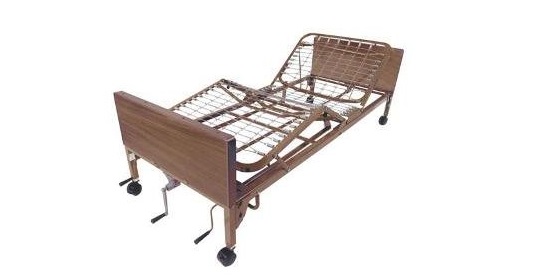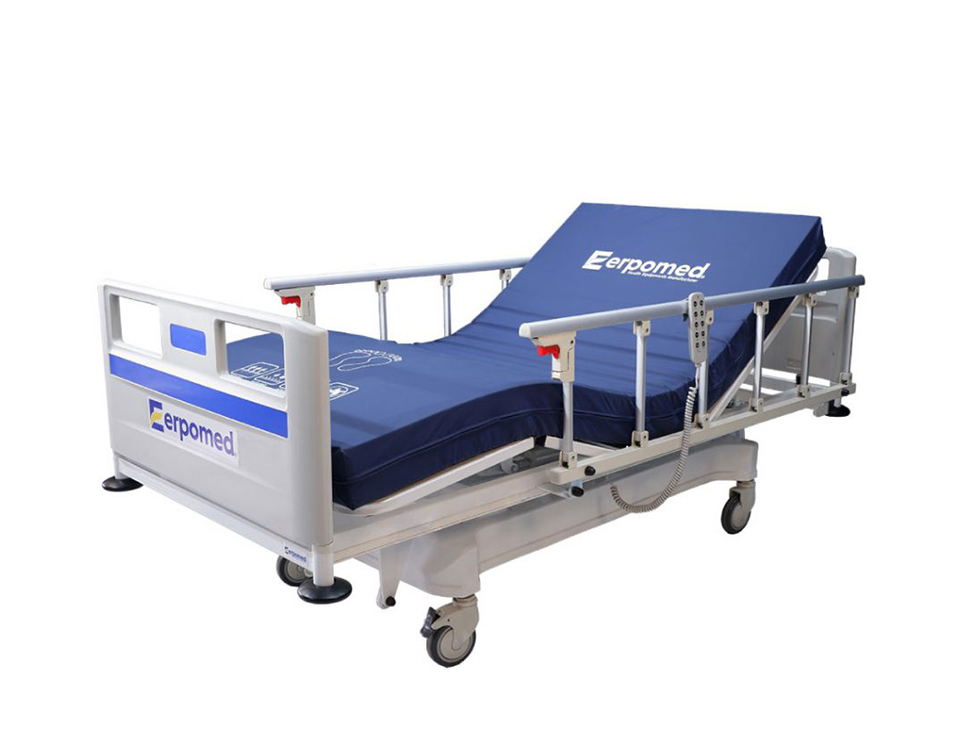Hospital Beds For Home Use for Dummies
Table of ContentsThe 15-Second Trick For Hospital Beds For Home UseHospital Beds For Home Use Fundamentals ExplainedNot known Incorrect Statements About Hospital Beds For Home Use What Does Hospital Beds For Home Use Mean?The Facts About Hospital Beds For Home Use UncoveredFascination About Hospital Beds For Home UseThe Definitive Guide for Hospital Beds For Home Use
There are 3 primary kinds of health center beds: handbook, semi-electric, and fully-electric. However, even more kinds of clinical beds exist and they are detailed below. These beds use hand cranks to change the bed's elevation and elevate and decrease the head and the foot. Hand cranks are normally located at the foot of the bed and require a person that is physically qualified of operating.

Semi-electric beds have an electrical motor to increase and reduce the head and foot parts of the bed. People and caretakers adjust the positioning by pressing switches making use of a hand necklace. The elevation of the bed is changed by hand with a hand crank. Full-electric beds have an electric motor that can increase the head and foot sections of the bed as well as the entire height and positioning of the bed.
The Ultimate Guide To Hospital Beds For Home Use
There are several kinds of healthcare facility beds, each designed to satisfy specific individual needs. Right here are some usual types: This is the most typical kind of medical facility bed, made for general clinical usage.
Lower to the ground than a standard bed. This type of bed is created for bigger patients, with a broader structure and higher weight ability than a standard bed.
This kind of bed is made for critically sick patients who call for open surveillance and specialized clinical equipment such as ventilators and infusion pumps. This kind of bed is developed for use during labor and delivery, with flexible positions and features to support the mommy and infant throughout the birth process.
Hospital Beds For Home Use - An Overview
Several function and the accessories do expanding grip to various components of the vertebra and the extremities without relocating the body. These are just a few instances of the sorts of health center beds offered. The particular type of bed made use of will rely on the individual's condition, clinical requirements, and other aspects.
Here is things you require to know. A one-function hospital bed is a clinical bed that allows a patient to relocate only the head or foot area up or down. A 2 feature healthcare facility bed commonly refers to a sort of medical bed that has 2 adjustable features to assist patients in health centers or treatment facilities.

Hospital Beds For Home Use Things To Know Before You Get This
A 7-function ICU bed is a kind of clinical bed that provides a number of flexible features to support seriously unwell individuals in a critical care unit (ICU) (hospital beds for home use). The 7 functions typically consist of: Back-rest adjustment: The back-rest link can be gotten used to various angles to help the patient stay up or lie down easily
Elevation change: The bed can be raised or reduced to make it simpler for clients to get in and out of bed, and for caregivers to provide treatment. Trendelenburg placement: The whole bed can be tilted to promote blood circulation and flow in the body. Reverse Trendelenburg setting: The bed can likewise be tilted in the contrary instructions to promote blood circulation and blood circulation in the upper body.
While more budget friendly than electric models, these beds require exertion for modifications. The primary advantages of hand-operated beds are their cost and dependability, as they don't count on power. Nevertheless, the need for hand-operated effort can be a limitation in scenarios where quick modifications are required or where caregivers encounter physical difficulties.
Getting My Hospital Beds For Home Use To Work
Semi-electric healthcare facility beds supply an equilibrium of guidebook and electrical controls. These beds give an optimal center ground in between handbook and totally electrical choices, providing simplicity of use without the full price of electrical versions.
Semi-electric beds are fit for individuals that need moderate changes to the head and foot sections but can manage without frequent height changes. This makes them an affordable option for those seeking convenience and benefit without the requirement for constant repositioning. Fully electrical hospital beds include electric controls for smooth modifications to the height, head, and foot sections.
Specialized health center beds, such as ICU beds, lasting care beds, and bariatric beds, are carefully designed to resolve details clinical needs. These beds provide customized take care of diverse individual teams, enhancing both outcomes and comfort. In the adhering to areas, we will explore the primary types of specialized healthcare facility beds, describing their details advantages and applications.
With years of experience in manufacturing electric straight actuators - hospital beds for home use and close cooperation with the health care my latest blog post industry, TiMOTION is well-positioned to supply reputable healthcare options. Our up and down integrated business takes care of every step of the production procedure, from design to actuator setting up, guaranteeing we provide exceptional worth and customized options tailored to your certain needs
The Facts About Hospital Beds For Home Use Uncovered

To find out more regarding integrating these innovations right into your products, contact us today. More reading:.
Information is sourced from the Medicare Price Report.

Not known Facts About Hospital Beds For Home Use
A hospital bed is a bed developed especially for clinical objectives. It is not only an area for clients to relax, however additionally a system for clinical procedures. Unlike normal home beds, hospital beds typically have adjustable features, which can help with medical personnel to make different modifications according to the demands of patients, such as changing the height, inclination, and support angle of the back and legs of the bed.
Comments on “A Biased View of Hospital Beds For Home Use”